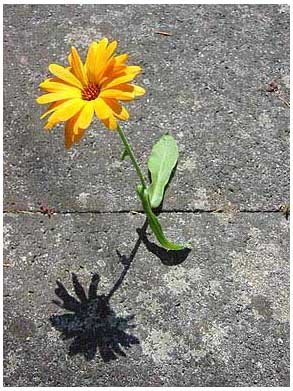Some other cool stuff
If you like these articles, why not try our WORKSHOP.
You can learn more about these topics in a practical, hands on way, where you get to see things for yourself. Treat Yourself!
Read More
The Fallacy of Perfectionism
24/Jan/2017
Why Do Different Spaces Feel Different?
19/Jan/2017
What Does it Mean to be Sensitive?
15/Jan/2017
The Fallacy of Perfectionism
Perfectionism has at its ideal something that is perfectly clean, fits together neatly, there is nothing out of order, out of step, nothing jarring or disharmonious.
There is only one thing I can think of in the multiverse that fit this description, and that is nothingness. Or zero. A point. The emptyset, though not even that, because that is a set which is something.
When applied to this world we currently live in, perfection doesn't exist. It is an ideal that is set up for failure. By the very nature of everything, it cannot exist. I will explain what I mean.
This world, but definition is the opposite of what I described above. It is like a bunch of threads, which if we try to comb straight will inevitably tangle somewhere. It is like the myth of Sisyphus, it can never be sorted out, finished, made complete or organised. It is messy.

If we look at the very basis of existence, out of nothing, the zero, comes 1. Already when you have 1, that is, anything different from zero, the start of duality, this implies that you already have 2, because you have 0 and 1, which is two things. From this all natural numbers emerge naturally. ;)
From the natural numbers we get fractions, i.e. The rationals. And these define the system of music, octaves, fifths, and fourths etc.
If you look at the ratios of musical intervals, it becomes clear, that a sequence of fifths doesn't very well relate to that of octaves. The nature of these intervals and of fractions is that they don't all fit neatly. They are already messy. If the very basis of everything, maths and music are both messy, how can anything less 'pure' come anywhere closer to perfection?
Now look at some everyday examples.
Imagine you have a bunch of threads, or cables, like headphone cables. And they are all tangled up. And you're working hard to untangle them. You may even make good progress. But by tomorrow they are tangled again. It's endless. You can go on forever working at it, but they will never remain straight and untangled.
 Now imagine you're playing some kind of solitaire game. The cards come mixed up and you play the game of straightening them out, putting them in order. You win one time you lose next, it goes on forever.
Now imagine you're playing some kind of solitaire game. The cards come mixed up and you play the game of straightening them out, putting them in order. You win one time you lose next, it goes on forever.
Or imagine you're solving a crime mystery. In fiction or real life. You may solve some, not others. And it will continue forever. You will never have everything straightened out.
Or think of your life. The world, the universe, politics, global warming, how everything works. You try to understand how things work, make sense of it. You come up with models, theories, explanations of how things work, why things happen. Your mind wants to put things in order, straighten things out. Some of these models may even be very useful and work. But they never make sense of it all, there will always be things we don't understand, out models fail at the edges.
The way out of this is not seeking perfection, but accepting that things are how they are. That is Truth. Truth is what there is. There are lies in the world, mess, crazy people, injustice, pain, all sorts. It is a mess. In as much as lies exist, they are part of what is, so they are part of the Truth.
This fallacy of perfectionalism is at the core of all fundamentalist ideologies. 'The pure race', 'our pure religion' they all have this idea that something can be distilled and made clean and sterile and unmessy. Nothing is unmessy. (I know, double negative, tough!)
On top of it's imppossiblity, there is another aspect to this kind of attitude. Whenever we try to achieve perfection, we are saying no to some of reality we say we want this, but not that. We are repressing, denying, making wrong, something that already exists, it is part of what is, it is part of the Truth. This creates a split, externally in the world, but more importantly internally, in our consciousness, where we engage in an ongoing and never finishing battle between what is and what 'should be'. Between reality and our idea of something that can never be. This battle is painful. It requires constant hard work, to maintain our belief that we can succeed.
Again, the only way out is the Truth. What is is what is. No matter how much we try thinking something else, if it already happened, it already happened, we can't wish it away.
This is what acceptance is about.